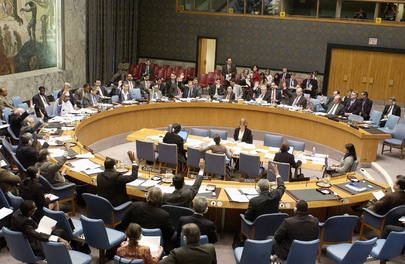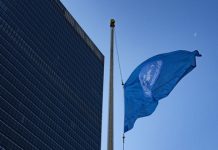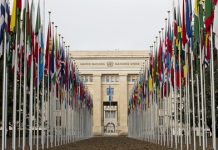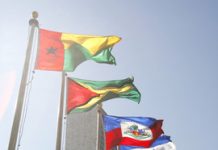Nearly 250 million children’s schooling disrupted by climate crises in 2024
At least 242 million students in 85 countries had their schooling disrupted by extreme climate events in 2024, the UN Children’s Fund, UNICEF, has warned.
Heatwaves, tropical cyclones, storms, floods and droughts are among of the dangers that have made the global learning crisis worse, new UNICEF analysis has shown.
Coinciding with the International Day of Education, the UN agency released data showing that at least one in seven students had their schooling disrupted because of climate hazards in 2024.
Of the 85 countries affected, 23 experienced multiple rounds of school closures and 74 per cent of all those affected students live in low and lower-middle-income countries.
South Asia was the most affected region in 2024 with 128 million students impacted by climate-related school disruptions. East Asia and the Pacific region followed, impacting 50 million students.
In 2024, heatwaves were the most significant climate hazard to affect schooling, concerning around 171 million students.
DR Congo: More civilians uprooted by hostilities amid Goma attack fears
Intensifying hostilities in eastern Democratic Republic of the Congo involving the non-state M23 armed group have caused further mass displacement in the mineral-rich region, with fears growing that the regional capital Goma could come under attack.
In an alert, the UN human rights office said that any such attack on Goma, the capital of North Kivu, would be catastrophic for hundreds of thousands of civilians.
Ravina Shamdasani, spokesperson for the UN human rights office, OHCHR, expressed deep concern that sexual violence is widespread in areas of conflict, with armed groups responsible for abducting women and girls, then raping and killing them.
“The High Commissioner appeals to all States with influence on the parties to impress on them the urgent need for an immediate cessation of hostilities. As the High Commissioner has said previously, any role played by Rwanda in supporting the M23 in North Kivu – and by any other country supporting armed groups active in the DRC – must end.”
The UN refugee agency, UNHCR also warned that “bombs have fallen” on camps for people uprooted by the violence in the Kivus.
These attacks included several in the last week, including one at Kitalaga site in South Kivu that killed two children. Another destroyed five makeshift shelters in Nzuolo, near Goma, while Bushagara site that’s also near the regional capital saw “new waves” of forced displacement after another strike.
Some 400,000 people have been displaced in North and South Kivu since the beginning of this year alone, UNHCR noted.
Nigeria humanitarian response plan aims to help 3.6 million people: OCHA
To Nigeria, where UN aid teams have launched a humanitarian appeal which again focuses on the northeastern states of Borno, Adamawa and Yobe – the Bay states – where conflict, climate shocks and economic instability continue to blight communities’ wellbeing.
OCHA, the UN aid coordination office, said that the target this year is to reach 3.6 million people in the northeast with health services, food, water, sanitation and hygiene.
Nutrition for children is also part of the $910 million appeal, along with support for protection, education and other basic services.
To absorb declining global funding, OCHA insisted that the Nigeria plan aims to make scarce resources go further, by supporting those delivering assistance locally more directly – and by shifting to cash and voucher assistance where possible.
A key part of the aid appeal includes prevention work to lessen the impact of floods and disease outbreaks.
Daniel Johnson, UN News
Don’t forget that you can hear more news and interviews on the UN News website and audio hub now.
Music composed and produced by Joachim Harris. All rights reserved
Source of original article: United Nations (news.un.org). Photo credit: UN. The content of this article does not necessarily reflect the views or opinion of Global Diaspora News (www.globaldiasporanews.com).
To submit your press release: (https://www.globaldiasporanews.com/pr).
To advertise on Global Diaspora News: (www.globaldiasporanews.com/ads).
Sign up to Global Diaspora News newsletter (https://www.globaldiasporanews.com/newsletter/) to start receiving updates and opportunities directly in your email inbox for free.





























